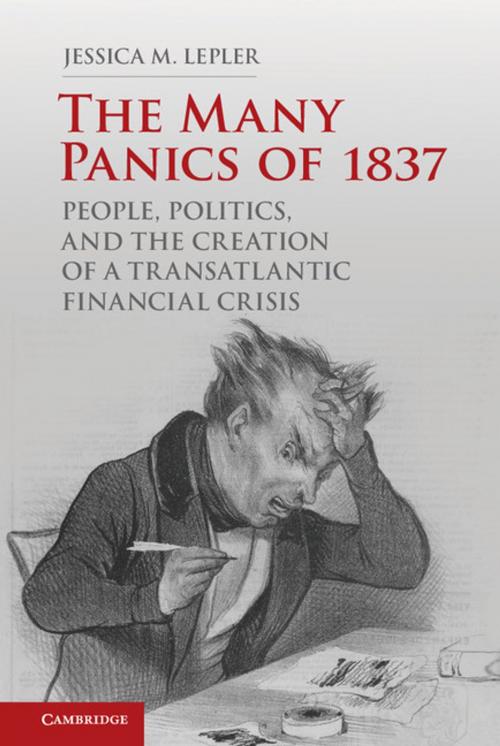The Many Panics of 1837
People, Politics, and the Creation of a Transatlantic Financial Crisis
Nonfiction, History, Americas, United States, 19th Century, Business & Finance| Author: | Jessica M. Lepler | ISBN: | 9781107423473 |
| Publisher: | Cambridge University Press | Publication: | September 16, 2013 |
| Imprint: | Cambridge University Press | Language: | English |
| Author: | Jessica M. Lepler |
| ISBN: | 9781107423473 |
| Publisher: | Cambridge University Press |
| Publication: | September 16, 2013 |
| Imprint: | Cambridge University Press |
| Language: | English |
In the spring of 1837, people panicked as financial and economic uncertainty spread within and between New York, New Orleans and London. Although the period of panic would dramatically influence political, cultural and social history, those who panicked sought to erase from history their experiences of one of America's worst early financial crises. The Many Panics of 1837 reconstructs this period in order to make arguments about the national boundaries of history, the role of information in the economy, the personal and local nature of national and international events, the origins and dissemination of economic ideas, and most importantly, what actually happened in 1837. This riveting transatlantic cultural history, based on archival research on two continents, reveals how people transformed their experiences of financial crisis into the 'Panic of 1837', a single event that would serve as a turning point in American history and an early inspiration for business cycle theory.
In the spring of 1837, people panicked as financial and economic uncertainty spread within and between New York, New Orleans and London. Although the period of panic would dramatically influence political, cultural and social history, those who panicked sought to erase from history their experiences of one of America's worst early financial crises. The Many Panics of 1837 reconstructs this period in order to make arguments about the national boundaries of history, the role of information in the economy, the personal and local nature of national and international events, the origins and dissemination of economic ideas, and most importantly, what actually happened in 1837. This riveting transatlantic cultural history, based on archival research on two continents, reveals how people transformed their experiences of financial crisis into the 'Panic of 1837', a single event that would serve as a turning point in American history and an early inspiration for business cycle theory.















